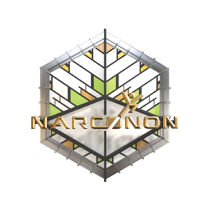The Debacle of Dual Diagnosis

There is a debacle with dual diagnosis, every medical expert’s and psychiatrist’s favorite term in discussing an addict’s “problems.” But the problem is, most experts cannot even fully define dual diagnosis. The U.S. National Library of Medicine, a department of the National Institutes of Health, attempted to define what exactly a dual diagnosis was, and they wrote a several-page-long research paper on the matter. According to their research paper, quoted directly:
“Currently, there are no diagnostic criteria for dual diagnosis or co-occurring disorders in the DSM-IV-TR.”
What the U.S. Library of Medicine found was “dual diagnosis” is essentially a broad, general statement lotted in with so many other, broad general statements in the veritable joke book that is the DSM-IV. Probably the simplest definition, though it is still extremely broad and general, for dual diagnosis comes from the National Alliance on Mental Illness. It says that:
“Dual diagnosis (also referred to as co-occurring disorders) is a term for when someone experiences a mental illness and a substance use disorder simultaneously. According to a 2014 National Survey on Drug Use and Health, 7.9 million people in the U.S. experience both a mental disorder and substance use disorder simultaneously.”
But here's the catch. How does one know that their addiction to drugs and alcohol is not just causing the mental crisis? The debacle of dual diagnosis is that, while it is very easy to say that an individual is struggling with psychological issues in tandem with a substance abuse habit, there exist no quantifiable, evidence-based means of proving what really causes those issues.

This is the age-old question of which came first, the chicken or the egg? Did the mental crisis beget the drug abuse, or did the drug abuse beget the mental crisis? Medical experts and psychiatrists are more prone to tell their patients that mental disorders caused the drug use because then they can prescribe their patients powerful, addictive, psychotropic medications and make money off those patients indefinitely.
That just doesn’t seem right.
The Process of Elimination Resolves All Confusion
Any addict, a parent of an addict, loved one of an addict or opinion leader for an addict should be very leery of accepting a mental disorder label being slapped on a drug addict or alcoholic just because they seem psychologically imbalanced. Of course they are psychologically imbalanced. They’re using drugs! That’s what drugs do!
When a person has been labeled “dual diagnosis” they need rehabilitation at an inpatient addiction treatment facility. They don’t need more medications. In fact, all addicts need treatment through residential rehabilitation facilities, as the addiction is what really needs to be resolved here.

Drug addicts and alcoholics should experience inpatient rehabilitation, and they should do so by coming down off of all substances. That includes psychiatric and psychotropic medications. Addicts deserve a clean slate. They deserve a fresh mind that is totally unhampered by drugs and alcohol. They deserve a fresh start with no mind-altering meds, no addictive pills, no alcohol, no marijuana, no street drugs, nothing. Rehabilitation is all about a fresh start, and an addict staying on psychotropic medications because they’ve been sold this idea that they have dual mental health disorders is just foolish.
Addicts have been through the worst of it all and back again. Most addicts will find that, once fully rehabilitated, any mental issues they had that they thought might have been mental disorders will have evaporated simply as a result of getting off of drugs and alcohol and learning how to handle life situations and people. A more holistic, drug-free and meds-free approach to rehabilitating addicts is what our country needs, now more than ever.
Sources:
